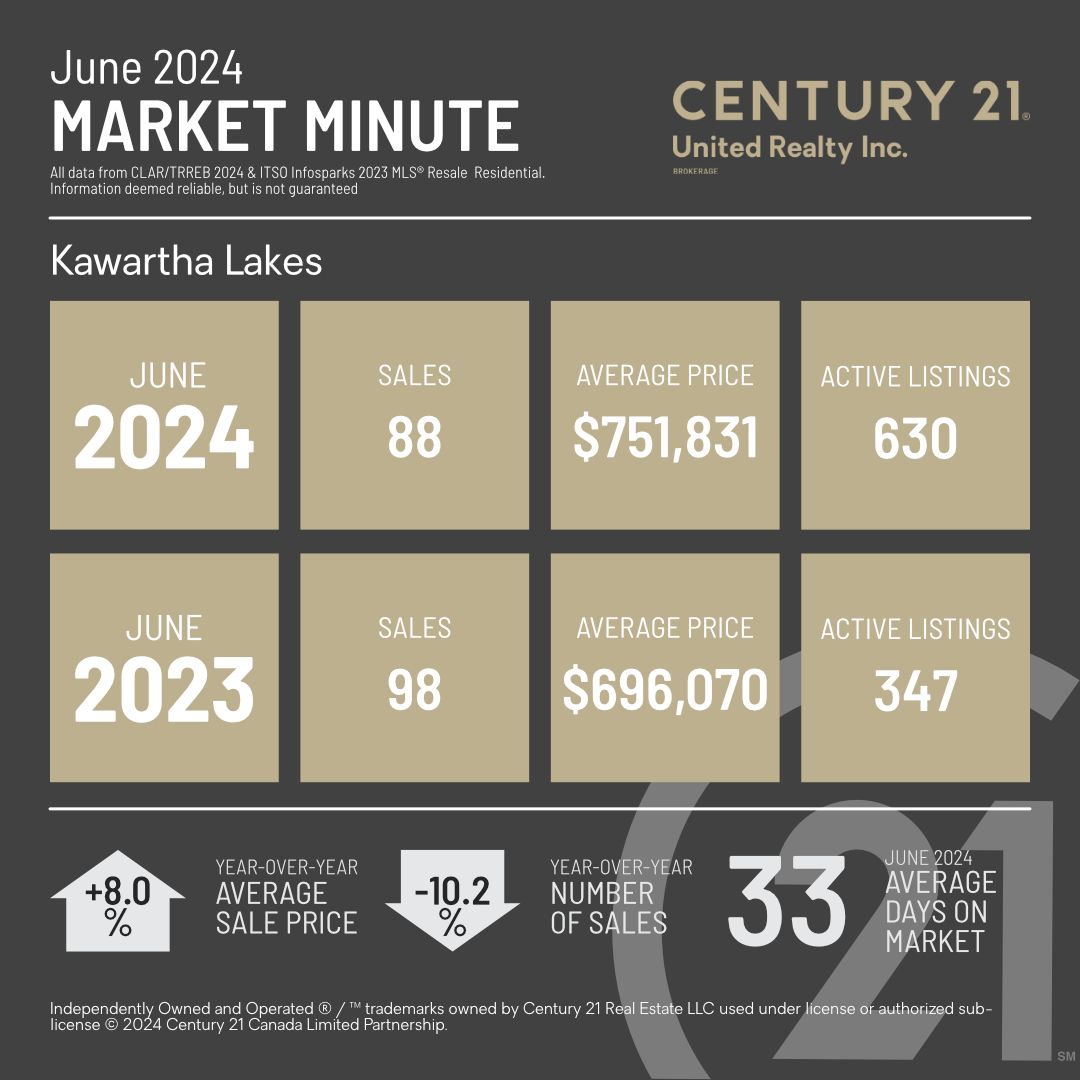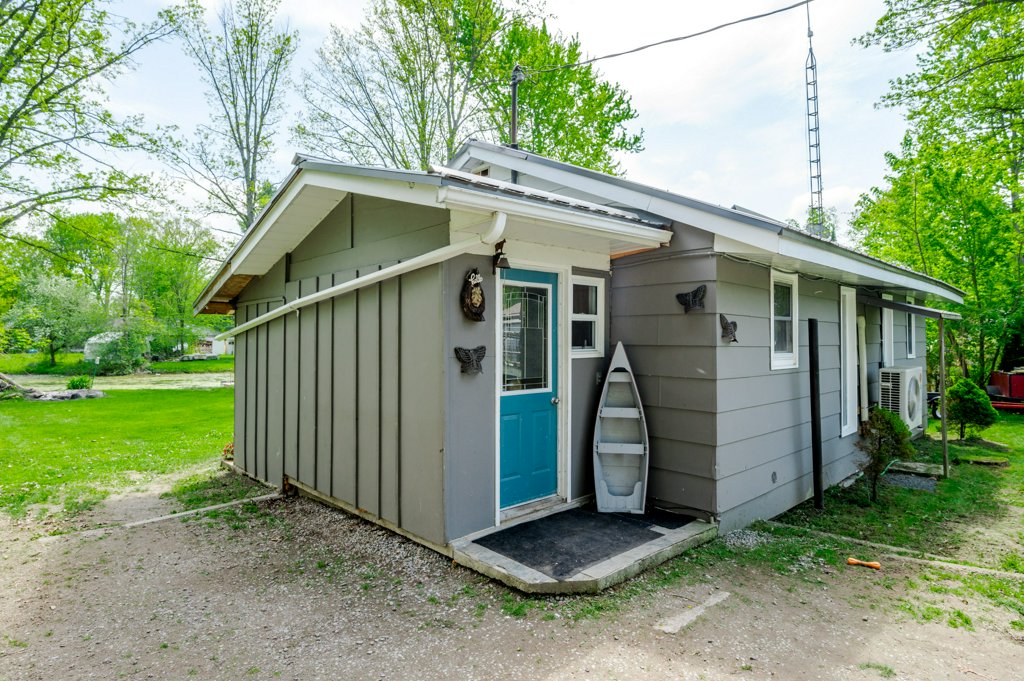Creating Low Maintenance Outdoor Spaces for Your Home

Transforming your outdoor space into a beautiful, functional area doesn’t have to mean hours of upkeep and constant attention. By incorporating a few smart design choices and selecting the right materials, you can create a low-maintenance outdoor oasis that allows you to enjoy your yard more and work on it less. Here are some ideas to help you get started:
1. Choose the Right Plants
Opt for native plants and drought-tolerant species. These plants are well-adapted to your local climate and soil conditions, requiring less water and care. Perennials, shrubs, and ornamental grasses are excellent choices for adding texture and color without needing frequent attention.
- Examples: Lavender, yucca, sedum, and ornamental grasses.
- Tip: Group plants with similar water needs together to make irrigation more efficient.
2. Use Mulch
Mulching is a fantastic way to reduce garden maintenance. It helps retain soil moisture, suppress weeds, and improve soil health. Organic mulches like bark, wood chips, or compost slowly decompose, enriching the soil.
- Tip: Apply a 2-3 inch layer of mulch around your plants, but avoid piling it against plant stems to prevent rot.
3. Opt for Hardscaping
Incorporate hardscaping elements such as patios, pathways, and decorative stone. These features add structure and visual interest while reducing the area that needs regular upkeep. Materials like pavers, gravel, and concrete are durable and require minimal maintenance.
- Examples: Stone patios, brick walkways, gravel paths.
- Tip: Choose permeable materials to enhance drainage and reduce runoff.
4. Install an Irrigation System
A drip irrigation system or soaker hoses can save time and water by delivering moisture directly to the plant roots. These systems can be set on timers to ensure your garden stays hydrated with minimal effort.
- Tip: Regularly check for clogs and leaks to keep the system running efficiently.
5. Low-Maintenance Lawn Alternatives
Traditional lawns can be labor-intensive. Consider replacing some or all of your grass with low-maintenance alternatives like ground covers, artificial turf, or clover. These options require less mowing, watering, and fertilizing.
- Examples: Creeping thyme, Irish moss, artificial grass.
- Tip: Choose ground covers that can withstand foot traffic if you plan to walk on them.
6. Durable Outdoor Furniture
Invest in high-quality, weather-resistant outdoor furniture. Materials like teak, aluminum, and synthetic wicker withstand the elements better than cheaper alternatives and require less upkeep.
- Tip: Use furniture covers or store pieces indoors during harsh weather to extend their lifespan.
7. Simplify Garden Design
Design your garden with simplicity in mind. Limit the number of plant species and decorative elements to create a cohesive, easy-to-maintain space. Symmetrical designs and straight lines can also reduce maintenance.
- Tip: Use container gardens to add flexibility and mobility to your plant arrangements.
8. Automated Lighting
Install solar-powered or low-voltage landscape lighting with timers or motion sensors. These lights require minimal maintenance and provide a beautiful, safe ambiance for your outdoor space.
- Tip: Place lights strategically to highlight key features and improve security.
Creating a low-maintenance outdoor space doesn’t mean compromising on beauty or functionality. By making smart choices in plants, materials, and design, you can enjoy a stunning yard that requires less effort and more relaxation. Embrace these tips and watch your outdoor space transform into an easy-to-care-for haven.
Setting Yourself Up for Success: Family Camping Tips
Camping is a fantastic way to bond as a family, immerse yourselves in nature, and create lasting memories. However, successful family camping requires thoughtful preparation and planning. Here are some essential tips to set yourself up for a memorable and enjoyable camping experience with your loved ones.
1. Choose the Right Campsite
Selecting the right campsite is crucial for a successful trip. Consider the following factors:
- Proximity to Home: For your first few trips, choose a campsite that’s not too far from home. This makes it easier if you need to cut the trip short.
- Amenities: Look for family-friendly campsites with amenities like clean restrooms, showers, and running water. Some sites offer playgrounds and organized activities for kids.
- Environment: Decide whether you prefer a forest, lake, or beach setting. Ensure the campsite has enough shade and level ground for tents.
2. Plan and Pack Wisely
Proper planning and packing can make or break your camping experience. Create a checklist to ensure you don’t forget essential items:
- Shelter and Bedding: Invest in a spacious tent with enough room for everyone. Bring sleeping bags, air mattresses, or sleeping pads for comfort.
- Cooking Supplies: Pack a portable stove, cookware, utensils, and enough food for the duration of your trip. Don’t forget snacks and treats for the kids!
- Clothing: Bring weather-appropriate clothing, including layers, rain gear, and sturdy footwear.
- First Aid Kit: A well-stocked first aid kit is essential for handling minor injuries and illnesses.
- Entertainment: Pack games, books, and outdoor toys to keep everyone entertained.
3. Involve the Kids in Preparation
Engage your children in the planning process to build excitement and ensure they feel included. Let them help with:
- Packing: Allow kids to pack their own backpacks with their favorite toys, books, and clothes.
- Setting Up Camp: Involve them in setting up the tent and organizing the campsite.
- Meal Planning: Let them choose some of the meals and snacks. This can make them more excited about mealtime.
4. Prioritize Safety
Safety should always be a top priority when camping with family:
- Know the Rules: Familiarize yourself with the campsite’s rules and regulations.
- Emergency Plan: Have a plan for emergencies, including knowing the location of the nearest hospital and having a fully charged cell phone.
- Wildlife Awareness: Teach your children about local wildlife and how to safely store food to avoid attracting animals.
5. Embrace the Experience
Camping is about enjoying nature and spending quality time together. Embrace the experience by:
- Disconnecting from Technology: Limit screen time and encourage activities like hiking, fishing, and stargazing.
- Being Flexible: Things may not always go as planned. Be prepared to adapt and go with the flow.
- Making Memories: Take lots of photos, but also take the time to simply enjoy the moment and create lasting memories.
6. Leave No Trace
Teach your children the importance of respecting nature by following the Leave No Trace principles:
- Pack Out What You Pack In: Ensure all trash is collected and disposed of properly.
- Respect Wildlife: Observe animals from a distance and do not feed them.
- Minimize Campfire Impact: Use established fire rings and ensure fires are completely extinguished before leaving.
A successful family camping trip is all about preparation, involvement, and a positive attitude. By following these tips, you can set yourself up for a fantastic adventure that your family will cherish for years to come. Happy camping!
The Ultimate Guide to Swimming Pool Maintenance

Owning a swimming pool is a luxury that brings endless fun, relaxation, and exercise opportunities. However, with this luxury comes the responsibility of maintaining your pool to ensure it remains clean, safe, and inviting. Proper swimming pool maintenance extends the life of your pool, prevents costly repairs, and keeps the water sparkling. Here’s an all-encompassing guide to help you with swimming pool maintenance.
1. Skimming and Scrubbing
Daily Skimming: Use a pool net to remove leaves, bugs, and other debris from the pool surface. Skimming daily keeps the water clear and prevents debris from sinking and causing more significant issues.
Scrubbing: Algae and dirt can cling to the pool walls. Scrub the sides of your pool weekly with a brush to prevent buildup. For stubborn spots, a bit of chlorine on the brush can do the trick.
2. Vacuuming
Manual Vacuuming: Invest in a good pool vacuum and manually clean the bottom of your pool weekly. This ensures that debris that sinks to the bottom is removed.
Automatic Cleaners: Consider using automatic pool cleaners, which can save you time and effort by doing the job for you.
3. Checking and Maintaining Water Levels
Weekly Checks: Check the water level weekly. It should be at the center level of your pool skimmer or pool tile. Too low, and the pump might run dry; too high, and the skimmer door won’t work correctly.
Top-Up: If the water level is low, use a garden hose to bring it back up to the proper level.
4. Balancing Pool Chemicals
Testing: Use a testing kit to check your pool’s chemical levels at least twice a week. The key levels to monitor are chlorine, pH, and alkalinity.
- Chlorine: Keeps your water clean and germ-free. Ideal levels are between 1.0 and 3.0 ppm.
- pH Level: Should be between 7.2 and 7.6. This ensures the water is safe and comfortable for swimmers.
- Alkalinity: Should be between 80 and 120 ppm. This helps maintain the pH balance.
Adjusting Chemicals: Based on your test results, add the necessary chemicals to balance your pool water. Follow manufacturer instructions carefully.
5. Cleaning the Pool Filter
Filter Types: There are three types of pool filters: cartridge, sand, and diatomaceous earth (DE). Each requires different maintenance methods.
- Cartridge Filters: Remove and hose down the filter monthly. Replace it when necessary.
- Sand Filters: Backwash the filter weekly.
- DE Filters: Backwash monthly and add new DE powder as needed.
Regular Inspections: Check your filter system weekly to ensure it’s working efficiently.
6. Shock Treatment
Why Shock?: Shocking your pool involves adding a large dose of chlorine to eliminate bacteria and algae. Do this after heavy rains, intense pool use, or once every two weeks.
How to Shock: Dissolve the shock treatment in a bucket of water and then pour it evenly around the pool. Follow the manufacturer’s instructions for the correct amount to use.
7. Winterizing Your Pool
Preparation: As the swimming season ends, winterize your pool to protect it from the elements.
Steps:
- Clean: Thoroughly clean your pool.
- Chemicals: Balance the water chemistry.
- Lower Water Level: Drain water below the skimmer.
- Equipment: Store equipment in a dry place.
- Cover: Use a sturdy pool cover to keep out debris.
8. Professional Maintenance
Scheduled Visits: Consider hiring a professional pool maintenance service for regular check-ups and deep cleaning. They can catch and address issues early, saving you money in the long run.
Expert Advice: Professionals can also provide personalized tips and recommendations for maintaining your specific pool.
Regular swimming pool maintenance ensures your pool remains a source of enjoyment and relaxation. By following these steps and dedicating some time each week, you’ll keep your pool in pristine condition, ready for endless fun and relaxation.
Remember, the key to effective pool maintenance is consistency. Establish a routine, stick to it, and your pool will reward you with years of refreshing, hassle-free enjoyment.
Are you looking to own a backyard oasis with your own swimming pool, but don’t have a REALTOR® yet? Call us at 705-743-4444 to speak to one of our agents. We always have someone on duty ready to help!
Fun Summer Activities to Enjoy with Kids

Summer is here, bringing with it long days, warm weather, and a wonderful opportunity to create lasting memories with your kids. Whether you’re looking for outdoor adventures, educational experiences, or simple at-home activities, there’s something for everyone. Here’s a list of fun and engaging summer activities to enjoy with your children.
1. Explore Nature
Hiking and Nature Walks: Discover local trails and nature reserves. Look for trails that are kid-friendly, and bring along a field guide to identify plants and animals. Turn it into a scavenger hunt to make it even more exciting.
Beach Days: Spend a day at the beach building sandcastles, collecting seashells, and splashing in the waves. Don’t forget sunscreen, snacks, and plenty of water.
Camping: Plan a camping trip, even if it’s just in your backyard. Teach your kids how to set up a tent, roast marshmallows, and tell stories around the campfire.
2. Creative Projects
Arts and Crafts: Set up a creative station with paints, markers, paper, and other craft supplies. Encourage your kids to create their masterpieces, from painting rocks to making friendship bracelets.
DIY Science Experiments: Conduct fun and simple science experiments at home. Volcano eruptions with baking soda and vinegar, homemade slime, and growing crystals are always a hit.
Gardening: Start a small garden and teach your kids about planting and caring for flowers, vegetables, or herbs. It’s a hands-on way to learn about nature and responsibility.
3. Educational Activities
Library Visits: Visit your local library for summer reading programs, storytelling sessions, and book borrowing. Many libraries offer themed activities and challenges to keep kids engaged.
Museum Trips: Explore local museums, science centers, and zoos. These places often have special summer exhibits and interactive displays that make learning fun.
Historical Sites: Visit historical landmarks and sites in your area. It’s a great way to teach kids about history in an interactive and engaging manner.
4. Outdoor Adventures
Bike Rides: Go on family bike rides around your neighbourhood or in local parks. It’s a great way to exercise and explore new places together.
Picnics: Pack a picnic and head to a nearby park. Bring along some games like frisbee, soccer, or a kite for added fun.
Water Activities: Visit a local pool, water park, or splash pad. Water balloons and backyard sprinklers can also provide hours of entertainment.
5. Cooking and Baking
Cooking Classes: Teach your kids to cook simple meals or bake treats. Involve them in meal planning, shopping, and preparation. It’s a fun way to develop their culinary skills and try new foods.
Ice Cream Making: Make homemade ice cream or popsicles together. Experiment with different flavours and toppings.
Themed Dinners: Have themed dinner nights where you cook and dress according to a particular cuisine or culture. It’s a fun way to learn about different foods and traditions.
6. At-Home Fun
Movie Nights: Set up an outdoor movie night with a projector and some cozy seating. Don’t forget the popcorn and snacks!
Board Games and Puzzles: Spend an afternoon playing board games or working on a large puzzle together. It’s a great way to bond and challenge each other.
Reading Nook: Create a cozy reading nook with blankets, pillows, and a stack of books. Encourage your kids to spend some quiet time reading their favourite stories.
Summer is a magical time to bond with your kids and create cherished memories. Whether you’re venturing outdoors, getting creative at home, or exploring new places, the key is to enjoy the time together. Embrace the spontaneity of summer, and have fun making the most of these precious moments with your children.
Summer House Maintenance to Keep Cool

As summer temperatures soar, maintaining a cool and comfortable home becomes a top priority. Proper upkeep not only ensures a pleasant living environment but also helps reduce energy costs and prolong the life of your cooling systems. Here are some essential summer house maintenance tips to keep you cool all season long:
1. Check and Service Your Air Conditioner
Regular Maintenance: Schedule a professional HVAC technician to inspect and service your air conditioner. This includes cleaning coils, checking refrigerant levels, and ensuring the system is running efficiently.
Filter Replacement: Replace or clean the air filters every 1-2 months. Clean filters improve airflow and efficiency, keeping your home cooler and reducing energy consumption.
For more information on maintaining your HVAC system year-round, check out our previous blog post, Year-Round HVAC Maintenance Tips: Keeping Your Home Comfortable All Year Long
2. Seal Windows and Doors
Inspect Seals: Check the seals around windows and doors for any gaps or cracks. Sealing these gaps with weatherstripping or caulk prevents cool air from escaping and hot air from entering your home.
Install Window Film: Apply reflective window film to reduce heat gain from the sun. This can significantly lower indoor temperatures and reduce the workload on your air conditioner.
3. Optimize Your Ceiling Fans
Check Direction: Ensure your ceiling fans are set to spin counterclockwise during the summer. This direction creates a cooling breeze by pushing air downwards.
Clean Blades: Dust and clean the fan blades regularly to ensure optimal performance and airflow.
4. Inspect and Clean Vents
Clear Obstructions: Make sure that vents are not blocked by furniture, rugs, or curtains. Clear vents allow for better air circulation throughout your home.
Dust and Vacuum: Regularly dust and vacuum vents to prevent dust buildup, which can impede airflow and reduce cooling efficiency.
5. Enhance Insulation
Attic Insulation: Check the insulation in your attic. Proper insulation helps keep cool air in and hot air out, making your home more energy-efficient.
Wall and Floor Insulation: Ensure your walls and floors are adequately insulated, especially in older homes. This helps maintain a consistent indoor temperature.
6. Maintain Your Thermostat
Upgrade to a Programmable Thermostat: A programmable thermostat can help regulate your home’s temperature more efficiently, allowing you to set specific cooling schedules.
Proper Placement: Ensure your thermostat is placed away from direct sunlight, drafts, and heat-producing appliances to get an accurate reading of your home’s temperature.
7. Check Your Roof and Gutters
Inspect for Damage: Look for any damage to your roof, such as missing shingles or leaks. A damaged roof can let in hot air, increasing indoor temperatures.
Clean Gutters: Clear out gutters to prevent water buildup and potential leaks. Proper drainage helps maintain the integrity of your roof and home.
8. Use Window Coverings
Curtains and Blinds: Close curtains or blinds during the hottest parts of the day to block out direct sunlight and reduce indoor temperatures.
Reflective Shades: Consider installing reflective shades or thermal curtains to further reduce heat gain.
9. Landscape Wisely
Plant Trees and Shrubs: Planting trees or shrubs around your home can provide natural shade and reduce the amount of direct sunlight hitting your house.
Mulch: Use mulch in garden beds to help retain moisture and keep the surrounding areas cooler.
10. Maintain Your Outdoor Space
Clean Outdoor Units: Ensure that the area around your outdoor air conditioning unit is clear of debris, leaves, and plants. Proper airflow around the unit improves efficiency.
Patio and Deck Maintenance: Keep your patio or deck clean and in good condition. A well-maintained outdoor space can provide a cool retreat during summer evenings.
By following these essential summer house maintenance tips, you can create a cooler and more comfortable living environment while also reducing energy costs. Stay proactive with your home upkeep, and you’ll enjoy a pleasant and refreshing summer indoors.
Real Estate Market Analysis for June 2024

As we step into the second half of 2024, the Peterborough real estate market presents an interesting landscape, reflecting broader economic trends and shifting buyer sentiments. Here’s a detailed look at the stats for June 2024, comparing them with June 2023, and what they mean for buyers, sellers, and investors in our vibrant city.
Key Statistics
June 2024:
- Average Number of Sales: 103
- Average Price: $626,554
- Number of Active Listings: 258
- Average Days on Market: 23
June 2023:
- Average Number of Sales: 143
- Average Price: $639,211
- Number of Active Listings: 212
Year-Over-Year Changes:
- Average Sale Price: -2.0%
- Average Number of Sales: -28.0%
Sales Volume: A Notable Decline
One of the most striking changes is the significant drop in the number of sales. June 2024 saw 103 properties sold, a 28% decrease from the 143 sales recorded in June 2023. This decline can be attributed to several factors:
- Interest Rate Fluctuations: Rising interest rates have made mortgages more expensive, cooling down the previously heated market.
- Economic Uncertainty: Economic factors, including inflation and job market instability, may have caused potential buyers to adopt a wait-and-see approach.
- Buyer Sentiment: The market sentiment has shifted, with buyers becoming more cautious, waiting for potentially better opportunities.
Average Price: A Slight Dip
The average sale price in June 2024 was $626,554, down 2% from $639,211 in June 2023. While this decrease might seem minor, it signifies a cooling trend following a period of rapid price increases over the past few years. Key influences on this price adjustment include:
- Market Correction: After several years of significant appreciation, the market is naturally correcting itself to more sustainable levels.
- Supply and Demand: With a higher number of active listings (258 in June 2024 compared to 212 in June 2023), buyers have more options, reducing the urgency to bid up prices.
Active Listings: Increased Inventory
June 2024 saw 258 active listings, a notable increase from 212 in June 2023. More inventory means more choices for buyers, potentially leading to longer decision-making processes and more competitive pricing among sellers.
Days on Market: A Balanced Indicator
Properties in June 2024 spent an average of 23 days on the market. This relatively short period indicates a balanced market, where well-priced homes still attract quick attention. It’s a positive sign for sellers that there remains strong interest from buyers, even in a cooling market.
What This Means for Buyers and Sellers
For Buyers:
- Opportunities for Negotiation: With more listings and slightly lower prices, buyers have better negotiating power.
- Interest Rates: Keep a close eye on mortgage rates. Securing a favourable rate can make a significant difference in affordability.
- Act Quickly: Desirable properties still move fast, so be prepared to act when you find the right home.
For Sellers:
- Competitive Pricing: Price your home competitively to attract buyers in a market with increased inventory.
- Presentation Matters: Ensure your property stands out through effective staging and high-quality listings.
- Market Savvy: Work with a knowledgeable real estate agent to navigate market trends and set realistic expectations.
Looking Ahead
The Peterborough real estate market is showing signs of stabilization after a period of rapid growth. While the decline in sales and a slight dip in prices might seem concerning at first glance, they represent a move towards a more balanced and sustainable market. Both buyers and sellers can find opportunities in this environment by staying informed and adapting to the evolving market conditions.
As always, it’s essential to seek the advice of experienced real estate professionals when making decisions in the current market. Need help to decide your next move? Don’t know what these numbers mean for you? We always have an agent on duty to help you. Call our office at 705-743-4444 and we will be happy to direct you to a REALTOR® to answer your questions.
*All data from CLAR/TRREB 2024 & InfoSparks®© 2023 MLS® Resale Residential. Information deemed reliable but is not guaranteed.
Highlighted below are some of the major areas we cover with our stats:
The Latest Trends in Home Automation: Making Life Smarter and Simpler

Home automation is no longer a futuristic concept but a present-day reality. As technology evolves, our homes become smarter, more efficient, and more interconnected. Let’s delve into some of the latest home automation trends transforming our lives.
1. Voice-Activated Systems
Voice-activated systems are leading the charge in home automation. Devices such as the Amazon Echo, Google Home, and Apple HomePod have become household staples. These systems allow users to control various home functions, from lighting to temperature control, using simple voice commands. The integration of voice assistants with other smart home devices is making homes more interactive and user-friendly.
2. Smart Lighting
Smart lighting systems are becoming increasingly popular. These systems allow users to control lighting through their smartphones or voice commands. With the ability to adjust brightness, colour, and even create lighting schedules, smart lighting enhances both the ambiance and energy efficiency of homes. Brands like Philips Hue and LIFX are at the forefront of this trend, offering a wide range of customizable options.
3. Home Security and Surveillance
Home security is a significant concern for many homeowners, and advancements in automation are providing innovative solutions. Smart security systems, including cameras, doorbells, and locks, offer real-time monitoring and notifications. Companies like Ring, Nest, and Arlo are making it easier than ever to keep an eye on your property, whether you’re at home or away. Features such as facial recognition, motion detection, and remote access are adding layers of security and peace of mind.
4. Energy Management
As the world becomes more environmentally conscious, energy management is a critical aspect of home automation. Smart thermostats, such as those from Nest and Ecobee, learn users’ habits and adjust heating and cooling to optimize energy usage. Additionally, smart plugs and energy monitoring devices help track and reduce electricity consumption, contributing to lower utility bills and a smaller carbon footprint.
5. Integrated Home Entertainment
Home entertainment systems are evolving with automation, offering seamless integration and control. Smart TVs, sound systems, and streaming devices can now be controlled through a single interface, providing a more cohesive and enjoyable viewing experience. Brands like Sonos and Samsung are leading the way with multi-room audio systems and advanced smart TV features.
6. Health and Wellness
Health and wellness are becoming integral components of home automation. Smart home gyms, air purifiers, and sleep monitors are just a few examples of how technology is enhancing well-being. Products like Peloton bikes, Dyson air purifiers, and the Withings Sleep Analyzer are designed to promote a healthier lifestyle by integrating seamlessly into the home environment.
7. Home Hubs and Integration
The trend toward centralized home hubs is gaining momentum. Platforms like Apple HomeKit, Samsung SmartThings, and Amazon Alexa are enabling users to control all their smart devices from a single app or interface. This integration simplifies the user experience and allows for more advanced automation routines, such as coordinating lighting, security, and climate control based on specific triggers or schedules.
8. DIY Home Automation
DIY home automation kits are making it easier for homeowners to customize and expand their smart home systems. Companies like Wyze and SmartThings offer affordable and user-friendly devices that can be easily installed and configured without professional assistance. This trend is democratizing home automation, making it accessible to a broader audience.
The latest trends in home automation are not just about convenience; they’re about creating a safer, more efficient, and enjoyable living environment. As technology continues to advance, the possibilities for smart homes are endless. Embracing these trends can significantly enhance your lifestyle, making your home a hub of innovation and comfort.
Featured Property – 2117 2nd Line E, Campbellford

Are you dreaming of a serene escape, a place where nature’s tranquillity meets modern comforts? Look no further than 2117 2nd Line E, in Campbellford, Ontario. This hidden gem, situated on a back channel of the Trent River, offers a perfect blend of privacy and convenience, just 10 minutes from the heart of Campbellford.
Nestled on a spacious .41-acre lot, this property is much larger than it appears at first glance. Whether you’re an outdoor enthusiast or simply looking for a peaceful retreat, this home has it all. The property boasts a garage/shop, a dog pen, a vegetable garden, and a wood-fired outdoor sauna, providing a variety of uses and activities. There’s ample parking for vehicles, ATVs, snowmobiles, and even a boat, ensuring you have space for all your adventures.
Imagine waking up to the sounds of the Trent River, with direct water access right at your doorstep. This property features a boat launch and two floating docks, making it a dream for boating and fishing enthusiasts. The level, park-like setting offers a perfect spot to relax and enjoy the peaceful surroundings.
Step inside to find a cozy home that combines rustic charm with modern amenities. The primary bedroom features a patio door that opens to a covered portion of the deck, allowing you to enjoy the outdoors from the comfort of your room. There’s also a second bedroom, perfect for guests or family. The open living room/kitchen area is ideal for entertaining, with another walkout to the rear deck for easy indoor-outdoor living.
The home is equipped with a 3-piece washroom and main floor laundry for convenience. Practical features include a drilled well, full septic system, steel roof, UV system, air-sourced heat pump, and a wood stove, ensuring you have everything you need for comfortable year-round living.
The property’s channel provides easy access to the Trent River, offering 17 km of lock-free boating and fishing between Glen Ross and Percy Boom. In the winter, this versatile property transforms into a winter wonderland, perfect for snowmobiling or creating a skating rink on the frozen channel.
Whether you’re looking for a summer haven or a winter retreat, 2117 2nd Line E, Campbellford, is as versatile as it is beautiful. This four-season property offers a unique opportunity to escape the hustle and bustle of everyday life and immerse yourself in nature’s beauty.
Discover the magic of this private getaway and make it your own.
This property is listed with Aaron Marcinkowski, REALTOR® with CENTURY 21 United Realty Inc Brokerage. Schedule a showing today and experience firsthand the tranquillity and charm of this remarkable property. Reach out at 705-743-4444 or email aaron.marcinkowski@century21.ca. MLS® #X8481680
- Aerial view
- Rear Elevation
- Rear Yard
- Aerial view
- Kitchen
- Living Area
- Open Concept Living
- Bedroom
- Bathroom
- Exterior
- Exterior
- Waterfront
Embracing Mindfulness: Tips for Everyday Living

In the hustle and bustle of modern life, finding moments of peace and presence can be a challenge. Yet, integrating mindfulness into our daily routines can lead to a more balanced and fulfilling life. Mindfulness, the practice of being fully present and engaged in the moment, helps reduce stress, improve focus, and enhance overall well-being. Here are some practical tips to incorporate mindfulness into your everyday life.
1. Start Your Day with Intention
Begin your morning with a moment of mindfulness. Before diving into your daily tasks, take a few minutes to sit quietly and set an intention for the day. This could be a simple affirmation or a specific goal you want to focus on. For example, “Today, I will approach my tasks with calm and clarity.”
2. Practice Mindful Breathing
Breathing is a powerful tool to anchor yourself in the present moment. Whenever you feel overwhelmed or distracted, take a few deep breaths. Focus on the sensation of the air entering and leaving your body. This simple practice can help center your thoughts and reduce stress.
3. Engage in Mindful Eating
Eating is an activity that can easily become automatic. Slow down and savour your meals. Pay attention to the colours, textures, and flavours of your food. Chew slowly and appreciate each bite. This not only enhances your eating experience but also improves digestion and helps you recognize when you’re full.
4. Incorporate Mindfulness into Daily Activities
Everyday tasks, like washing dishes or walking, can become opportunities for mindfulness. Focus on the physical sensations involved in these activities—the warmth of the water, the feel of the ground under your feet. By fully engaging in these moments, you bring mindfulness into the mundane.
5. Practice Gratitude
Take time each day to reflect on what you’re grateful for. This could be done in a journal or simply in your mind. Focusing on positive aspects of your life helps shift your mindset and promotes a sense of contentment and well-being.
6. Limit Multitasking
Multitasking can scatter your attention and increase stress. Try to focus on one task at a time. Give it your full attention, complete it, and then move on to the next. This not only improves the quality of your work but also makes you more efficient.
7. Take Mindful Breaks
Incorporate short breaks into your day to reset and recharge. Step away from your work, take a walk, stretch, or simply sit quietly. Use this time to check in with yourself and your surroundings. These mindful pauses can boost your productivity and reduce burnout.
8. Practice Self-Compassion
Mindfulness also involves being kind to yourself. Acknowledge your feelings without judgment and treat yourself with the same compassion you would offer a friend. When you make a mistake, instead of being self-critical, remind yourself that imperfection is part of being human.
9. Engage in Mindful Listening
When conversing with others, practice active and mindful listening. Give the speaker your full attention, without interrupting or planning your response while they’re talking. This not only improves your relationships but also enriches your understanding and connection with others.
10. Create a Mindful Evening Routine
End your day with a calming routine that promotes relaxation and prepares you for restful sleep. This could include activities like reading, gentle stretching, or a mindfulness meditation. Avoid screens and stimulating activities before bedtime to help your mind unwind.
Mindfulness is a journey, not a destination. By incorporating these simple practices into your daily life, you can cultivate a greater sense of peace, presence, and well-being. Start small, be patient with yourself, and remember that each moment of mindfulness adds to a more mindful life.
The Ultimate Guide to Home Organization

Is your home feeling cluttered, disorganized, or just plain chaotic? A well-organized home not only looks appealing but also creates a calm and productive environment. Whether you’re dealing with a small apartment or a spacious house, these tips and strategies will help you transform your living space into a haven of order and tranquillity.
The Benefits of Home Organization
Before diving into the how-tos, let’s explore why home organization is essential:
- Reduces Stress: A clutter-free home can significantly lower stress levels, providing a peaceful environment where you can relax and unwind.
- Boosts Productivity: When everything has its place, you spend less time searching for items and more time focusing on what matters.
- Saves Money: Organizing helps you keep track of your belongings, preventing unnecessary purchases and reducing waste.
- Improves Health: A clean and organized home reduces the risk of accidents and makes cleaning easier, contributing to a healthier living space.
Step-by-Step Guide to Home Organization
1. Declutter Ruthlessly
The first step in any organization project is decluttering. Follow these steps to declutter effectively:
- Sort and Categorize: Go room by room, sorting items into categories: keep, donate, recycle, and trash.
- Ask Tough Questions: Do you use it regularly? Does it hold sentimental value? Is it in good condition? If the answer is no, it’s time to let it go.
- One-in, One-out Rule: For every new item you bring into your home, consider removing one to maintain balance.
2. Create Functional Spaces
Designate specific areas for different activities to maintain order:
- Entryway: Install hooks and shelves for keys, bags, and shoes to keep this high-traffic area tidy.
- Living Room: Use storage ottomans, baskets, and built-in shelving to store remotes, books, and other essentials.
- Kitchen: Maximize cabinet space with organizers, pull-out shelves, and labelled containers for easy access to ingredients and utensils.
- Bedroom: Keep nightstands clutter-free with minimal décor and use under-bed storage for out-of-season clothing or extra linens.
- Home Office: Organize paperwork with a filing system, and use cable management solutions to keep cords tidy.
3. Invest in Storage Solutions
Effective storage solutions are key to maintaining an organized home:
- Baskets and Bins: Use baskets and bins to corral smaller items, keeping them easily accessible yet out of sight.
- Shelving Units: Vertical storage solutions, like shelving units, make the most of your space and keep items off the floor.
- Drawer Dividers: Drawer dividers help keep utensils, office supplies, and clothing neatly separated.
- Labelling: Clearly label storage containers to ensure everyone in the household knows where things belong.
4. Develop Daily Habits
Consistency is crucial to maintaining an organized home. Develop these daily habits to keep clutter at bay:
- Make Your Bed: A made bed sets a positive tone for the day and instantly makes your bedroom look neater.
- Clean as You Go: Tidy up as you move through your home, putting items back in their designated spots.
- Evening Tidy-Up: Spend 10-15 minutes each evening picking up items and preparing for the next day.
- Weekly Maintenance: Set aside time each week for deeper cleaning and organization tasks, like sorting mail or organizing your closet.
5. Embrace Minimalism
Consider adopting a minimalist mindset to reduce clutter and focus on what truly matters:
- Quality Over Quantity: Invest in high-quality items that will last longer and serve multiple purposes.
- Mindful Consumption: Be mindful of what you bring into your home, ensuring it adds value to your life.
- Simple Décor: Opt for simple, meaningful décor pieces that don’t overwhelm your space.
Home organization is an ongoing process that requires commitment and a bit of effort, but the rewards are well worth it. Start small, stay consistent, and enjoy the benefits of a well-organized living space.

 Facebook
Facebook
 X
X
 Pinterest
Pinterest
 Copy Link
Copy Link























